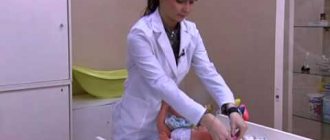What is immunity and what does it look like?
Immunity is the body’s ability to resist threats that enter it from the outside. This system is a rather complex and fragile mechanism, which needs to be carefully monitored and its performance improved.
The immunity of each person is divided into two large categories - natural and artificial.
Natural immunity can be congenital (transmitted to the child from the mother) and acquired (formed throughout life when the body encounters various pathogens). It is natural acquired immunity that we can increase and strengthen using various available methods.
Artificial immunity is formed by administering various forms of vaccines and serums to the child. By introducing live or already dead cultures of various infections, our body is helped to increase the level of antibodies and increase resistance to certain diseases.
Recipes for increasing immunity with folk remedies in children
1.Grind 300 g of peeled walnuts, 300 g of dried apricots, 300 g of raisins and 3 lemons with zest and add 1 tbsp. a spoonful of honey. Take 1 tablespoon (adults) and 1 teaspoon (children) per day. It is better in the morning on an empty stomach or before lunch, an hour before meals. Can also be taken at night. Store in the refrigerator.
There is this option: Take 1 glass of walnuts, raisins and dried apricots and 1 lemon (without peel). Grind everything in a meat grinder and add 1 glass of honey, mix. Some people also add figs to taste. This product is very tasty and, most importantly, healthy.
2.Mix 100 g of peeled ground walnuts, 100 g of grated peeled apples, juice of 2 lemons, 1 tbsp. a spoonful of honey. Take a tablespoon (teaspoon for children) 2-3 times a day before meals. Store in the refrigerator.
3.In the spring, for 3 weeks, take any freshly squeezed red juices: beetroot, cherry, blackberry, strawberry, grape, pomegranate, cranberry. In the first week, it is recommended to take ½ glass 3 times a day, in the second - 2 times, in the third - 1 time, and in the intervals between meals. After 10 days the course can be repeated.
4.Rub 1 kg of chokeberry berries with 1.5 kg of sugar. You can use 1 tbsp for 3 weeks. spoon, morning and evening.
You can make an infusion: 1 tbsp. Infuse a spoonful of berries in 1 glass of boiling water in a thermos for 4-5 hours. After the contents have infused for 20 minutes, close the thermos with a stopper.
5. Mash 0.5 kg of cranberries, add a glass of walnut kernels and 2-3 green (preferably winter varieties) peeled apples, cut into cubes. Add 0.5 cups of water and 0.5 kg of sugar, cook over low heat until it boils, put in jars. Take 1 tbsp. spoon morning and evening, washed down with tea.
6. 2 tbsp. Pour 2 cups of boiling water over spoons of dried rowan berries, leave for 20 minutes, strain. Drink 0.5 cups 3-4 times a day before meals. It is better to take with honey, which enhances the healing properties of rowan.
7.The body's defenses can be increased with vitamin compote, which is recommended to drink at least 0.5 liters per day.
Take herbs: lemon balm, mint, chestnut flowers, fireweed, brew 5 tbsp. spoons in 1 liter of water and leave to infuse for 2 hours.
Take cranberries, black currants, viburnum, cherries, strawberries, any other local fruits (can be dry or frozen), cook a compote from them in 2 liters of water for 10 minutes.
Add the strained decoction of herbs to the compote, bring to a boil, add honey to taste.
Signs of a weakened immune system
The child’s daily lifestyle should be aimed at strengthening and maintaining immunity, regardless of the child’s general condition
A variety of signs can indicate a deterioration in the functioning of the immune system:
- The appearance of complications during the course of colds. The disease progresses sluggishly and for a long time, leading to otitis media, bronchitis and other complications.
- A child suffers from ARVI or influenza more than 5 times a year.
- Regular problems with bowel function. The child suffers from diarrhea or constipation.
- Increased fatigue after any activity, as well as for no apparent reason at all.
- Often the manifestation of fungal and viral infections such as herpes.
- Enlarged lymph nodes or spleen.
What factors influence the immune system?
A child’s immunity is a complex system, failures in which can be caused by various factors:
- unhealthy diet - abuse of sweets and fast food, spicy and fatty foods,
- lack of vitamins and minerals,
- disturbance of sleep and wakefulness,
- diseases of the gastrointestinal tract,
- long-term use of antibiotics and other medications,
- allergic reactions,
- excessive physical and psycho-emotional stress.
The more factors that affect a child at the same time, the higher the risk of contracting an infection. It should also be taken into account that the formation of the immune system does not go smoothly. This process is always accompanied by periods of crisis. There are five of them:
- the first 28 days of life - during the newborn period, the baby’s immunity is suppressed, babies are very susceptible to infections;
- 3-6 months - maternal antibodies decay, and one’s own immune defense is not yet fully activated;
- 2-3 years - children begin to have more contact with the outside world, the main tool of protection is still the innate immune response, adaptive immunity is in the process of formation;
- 6-7 years - the period when school starts and the daily routine changes; the child’s contacts with others expand extremely when the mechanisms of adaptive immunity are not fully formed;
- 11-14 years is the time of complete hormonal changes in the growing organism and the formation of its own immunity, which is developed in response to the introduction of pathogenic microorganisms.
The task of parents is to help their son or daughter successfully overcome periods of crisis and increase the child’s immunity by all available means.
Causes of weak immunity in a child
To understand how to properly strengthen and improve a child’s immunity, it is important to understand the reasons for the poor functioning of the immune system.
The child’s immunity begins to develop in the womb, starting from the 20th week of pregnancy, so if a woman leads an incorrect lifestyle while pregnant, this can also affect the formation of the protective functions of the baby’s body. In order for the immune system to develop as it should, the mother needs to walk in the fresh air more often, avoid stress, eat right and, of course, remove bad habits from her life. Do everything to raise and strengthen your own immune system.
In infancy, breastfeeding helps a child develop high-quality immunity. It is critically important in the first days of life, when the baby receives her antibodies through mother’s milk, and according to WHO recommendations, breastfeeding should not be less than 6 months, if the health of the baby and mother allows this.
Next, parents need to pay attention to the quality of complementary foods and carefully monitor the child’s body’s reaction to certain foods, since frequent allergic reactions and gastrointestinal disorders can also cause weak immunity.
The next reason is a lack of vitamins and minerals. If a child has a monotonous and unbalanced diet, this can weaken the immune system.
Uncontrolled and unjustified use of medications, especially antibiotics, also greatly affects the body’s defenses. We must not forget about the hereditary factor, because poor immunity can be transmitted from parents to child.
Children's immunity and ways to strengthen it
I know everything about you. I know that you feel almost physical pain when mothers you know on the playground boast about how their Sasha and Mashenka have practically never gotten sick for the last six months of being in kindergarten. And Sveta, an employee at work, revealed the secret of this magical healing - a new drug Immunoukrepin, which is now prescribed in almost every children's clinic, and you can easily buy it at the pharmacy. Thank goodness no prescription is required. And I also know that you have already fed your child three packs of this damn Immunoukrepin, and he is “such a brute, it doesn’t work!” (c) You have to again pour Snot Is Disappearing into your nose and drip Kashleprekratin into your mouth, otherwise you will not have a restful sleep like your ears.
Why do children get sick more often than adults? What happens if parents create “sterile” living conditions for their children? What do the signs of immunodeficiency actually look like? Why does Immunoukrepin have such selectivity?
Before answering these questions, I must tell you about the very concept of “immunity” and the mechanism of its work. I have already done something similar in the article “Truth and Myths about Fever”, comparing the immunity of border guards and regular army soldiers. Today I will slightly expand and complement my attempt to explain the structure of the immune system and the mechanisms for destroying everything that is foreign to the human body. There will be a lot of information, so get ready...
Every day bloody battles take place within us, in comparison with which the battles of Stalingrad and Waterloo seem like a walk in the park. Millions of hostile bacteria, viruses, fungi and parasites are trying to get inside and cause irreparable harm to our cells and organs. To combat them, one of the most ancient systems of the human body and living organisms in general arose - the immune system . It works on a very simple “friend or foe” principle: its own, normal cells are marked with special markers, thanks to which they remain untouched, and everything that does not pass face control is subject to destruction. This applies not only to microbes penetrating from the outside, but also to their mutant cells, which doctors call tumor cells.
The entire immune system is conventionally divided into two types: innate ( “nonspecific” , because it is configured to fight all types of pathogens) and acquired ( “specific” , because it works strictly with the microorganism that caused a specific disease at the moment) immunity.
I'll explain what the meaning is. The fetus is in the mother's womb in sterile conditions, because it is protected from the outside world by the uterine cavity, and all nutrients and oxygen are supplied to it through the placenta, which filters the blood from all poisons, toxins and bacteria, including viruses.
It turns out that until the birth of the child, the mother takes on the protective function, but what happens after childbirth? After leaving the womb, a newborn encounters a colossal number of different bacteria that need to be protected from. How will a seemingly completely helpless and weakened baby fight them? It's not that simple, my dears.
All children are born with so-called innate immunity, that is, a genetically programmed ability to fight the vast majority of pathogens.
Innate immunity is tough and brutal, it is not perfect, but thanks to it it is possible to keep pests at arm's length. It can be compared to border troops who carry out their service on the borders of the country-organism. Border guards are so-so warriors. If the enemy is weak, then they can cope on their own, but when someone more dangerous and, most importantly, unknown until that moment, attacks, then their task, by and large, is to contain the enemy at any cost until the regular army arrives (acquired immunity). That is why the work of nonspecific immunity is noticeable to the naked eye - pain, fever, weakness, lack of appetite and all the other “delights” of any infectious disease occur precisely during the period of its work. And only after the inclusion of specific immunity in the fight comes the complete defeat of the enemy and recovery from the disease.
There is another equally important component of the immune system. Following our “military” analogy, let’s call it “security service” . Its task is to detect and immediately destroy its own, mutated cells that do not fit into the overall picture and become hostile.
The most famous example is the destruction of tumor cells. Didn't you know? Every day, tens and hundreds of thousands of tumor cells are formed in your body, which can potentially turn into full-fledged cancer of the breast, thyroid gland, ovaries, etc. However, a normally functioning immune system destroys these “mistakes of nature” in the bud, preventing them from developing into a full-fledged disease.
That is, roughly speaking, if the “border guards” and the “regular army” fight external enemies (viruses, bacteria, fungi, parasites), then the “security service” destroys internal enemies - their own cells (tumor and others that differ from normal ones). Unfortunately, it sometimes happens that the “security service” gets confused and begins to destroy not only defective, but also absolutely normal cells, thus causing a special group of diseases - allergies and autoimmune diseases.
Great! Now you more or less understand the working methods of our “defenders”. You know that a child has an innate immune system that can restrain infectious agents until specific immunity is formed in the form of the production of antibodies (immunoglobulins) to them. Antibodies are very specific and cannot work with other microbes - if a child’s body encounters a new bacterium or virus, a new cycle of “infection - disease (the work of nonspecific immunity) - recovery (the formation of specific immunity)" .
But that's not all! Due to the fact that the placenta is capable of passing antibodies through itself, the mother shares them with her baby. Once in the baby's bloodstream during pregnancy, they will remain there for 6 to 12 months.
Now do you understand why children usually get sick much more often after a year of life? They simply run out of their mother’s antibodies and now they need to learn how to produce their own. And all this will take place in the form of more and more new cycles of “infection-illness-recovery” until a critical mass of immunoglobulins has accumulated for the majority of pathogens circulating in your place of residence.
It usually looks like this. The child is protected by the mother’s antibodies almost until kindergarten age. In addition, he mostly stays at home or outside and avoids direct contact with sick people. That is, he can get sick, but, as a rule, this happens rarely and is not very severe. But as soon as you send him to kindergarten, the guard begins! Diseases pour out like a “horn of plenty” and it seems that there will be no end to them!
6-8-10-12 diseases per year are considered absolutely normal in developed countries such as the USA, Great Britain, Israel, Germany, France, etc. And it's not because they are so stupid and can't do anything about it. They just know the rules of how the immune system works well and don’t make a big deal out of a mountain, as we like to do.
There is evidence that early exposure of a child to the most common pathogens has a positive effect on the development of the immune system.
It is very easy to explain this phenomenon: absolutely all systems of the human body work according to the principle “who works, eats.” Just as a marathon runner has well-developed leg muscles due to constant use of them, so the immune system works perfectly against the backdrop of a constant fight against infectious agents. This is our army, don’t you forget? What happens when the army is idle due to idleness? That's right, the army is being reduced in size to save the budget. But in the event of a surprise attack, there will be no one left to defend the country.
But that's not all. Remember the “security service” that destroys all defective cells of its own body. It’s no coincidence that I told you about it at the very beginning of the article. Scientists are inclined to believe that in the absence of the need to fight an external enemy, the immune system switches its attention to the internal front, while it destroys not only bad and abnormal cells, but also absolutely normal ones (autoimmune diseases), and even encounters seemingly , absolutely normal and ordinary external factors can turn into a super strong immune reaction (allergy).
This theory is not just made up, but has a real basis: children and adults from the lower social class have a much lower incidence of allergies or autoimmune diseases than those who are more affluent. Residents of Africa almost never suffer from allergies, just like children from low-income families, even in the CIS countries, are much less likely to end up in the hospital with symptoms of ARVI or intestinal infection.
I in no way urge you to urgently sell your apartments and make yourself comfortable near the trash can, but in any case, we are obliged to draw conclusions: placing a person in sterile conditions from a very early age is fraught with consequences, sometimes very serious. And don’t be surprised later why your boy’s adenoids and palatine tonsils have grown so much.
Unfortunately, there really are situations when children are born with an already malfunctioning immune system, but here, too, not everything is so simple. Serious disturbances in the functioning of the immune system are very rarely manifested by frequent colds, which are usually discussed. Clinical criteria have been developed that allow one to suspect a congenital genetic defect. These include:
- severe sinusitis (inflammation of the paranasal sinuses) more than twice a year;
- more than 8 otitis media (inflammation of the middle ear);
- 2 or more pneumonias per year that are difficult to treat;
- recurrent deep abscesses of the skin or internal organs;
- need for intravenous antibiotics.
Only if the listed signs are present, an in-depth study of the parameters of the immune system is necessary to find at what level the defect has formed. You understand? Real immunodeficiencies are mainly manifested by frequent bacterial infections, not viral ones! Thank God, they are extremely rare, literally one case per 30,000 population.
And it seems that everything has become clear: children have the right to get sick, especially with viral infections, especially after starting kindergarten, but true immunodeficiencies manifest themselves in a completely different way, and are extremely rare.
But something needs to be done about these snot! Every month, take sick leave, spend a lot of money on medications, stay on duty at night with a thermometer in your hands and the never-ending thought “what if his temperature rises in his sleep, and I don’t have time to give Nurofen, and then the child burns/dries out/melts?” - not everyone will like this.
And, of course, everyone dreams of receiving from the doctor the coveted “golden pill” that will strengthen the baby’s weak immunity and drive away these nasty viruses once and for all. Without exaggeration, millions of mothers and fathers dream about this, which means there is demand. And when there is demand, there will be supply. Every self-respecting pharmacy keeps in a prominent place a special shelf labeled “Immunostimulants”, “Immunomodulators”, “Antiviral”, etc. It can contain up to several dozen different medications, which by their very appearance promise to solve all your problems for a purely symbolic amount of USD. Bright packaging, an approving look from a pharmacist and a preliminary recommendation from a full-time doctor do their job, and now the new owner of the super-duper-mega modern Immunoukrepin with a smile like a Cheshire cat in the middle of March rushes home in the hope of ridding the child of these hated snot.
Do you really want to know what she bought? At best, this drug is NOT dangerous. It was even tested for effectiveness, and it showed good results in... rats.
When a manufacturer is asked to show high-quality RCTs (randomized clinical trials) conducted on humans, for some reason there is silence. No, these studies may have even been carried out, but if their results are made public, then that “awkward moment” will come, so they are usually hidden. Moreover, what specific effect did they get on rats? Reduced incidence? No. They simply measure the level of certain substances involved in the immune system after taking the study drug. For example, the level of interferon, which is considered one of the main links in the fight against viral infections. If the amount of interferon in the test animals increased during the study, then the drug can already be called an immunostimulant. And the manufacturer is absolutely not concerned about the absurdity of this statement. This is the same as making a machine that throws bricks, and then loudly declaring that in a couple of months this know-how will “throw” you a pretty big Renaissance palace.
It should not be surprising that abroad Immunoukrepin will simply be chopped into pieces by such important organizations as the FDA, FMA, AIFA, etc. For them, a specific end result is important, that is, the drug must actually reduce the incidence of diseases, and not just “increase something somewhere.”
Unfortunately, such drugs have not yet been officially registered.
Let's summarize our results:
- Immunity is divided into innate (nonspecific) and acquired (specific). Nonspecific immunity is designed to fight any microorganisms, but it does not do it perfectly and its work is usually accompanied by corresponding symptoms. After a certain time of illness, antibodies to this particular pathogen begin to be produced (specific immunity) and recovery occurs. Antibodies usually remain for at least several years, if not for life, protecting the body from recurrent disease.
- All children are born with an already functioning innate immune system and temporary acquired immunity in the form of antibodies transmitted by the mother through the placenta. Over time, the transferred antibodies disappear.
- Usually, up to 6-12 months, children rarely get sick and, as a rule, not seriously. This is due to those same mother’s antibodies and rare contact with sick people.
- The peak of training a child’s specific immunity falls during the period of visiting kindergarten - a place of intense circulation of the most common, mainly viral, infections. Accordingly, it is at this time that children get sick most often.
- Early exposure of the child’s body to pathogens leads to the formation of high-quality and properly functioning immunity, which reduces the risk of developing allergic and autoimmune diseases. The sterile conditions that many parents try to create for their children not only do not help, but also harm the child’s health.
- True congenital and acquired immunodeficiency conditions are extremely rare and are manifested mainly by frequent bacterial and fungal diseases, rather than viral ones. Signs of immunodeficiency are described in the text.
- Immunostimulants, immunomodulators and antiviral drugs widely presented on the pharmaceutical market often turn out to be dummies that work at the placebo level, because they do not have a high-quality evidence base and are sold only thanks to a powerful advertising campaign. It is not surprising that in developed countries, where the effectiveness of drugs is very strictly monitored, these drugs are often not even allowed on the market.
Page of Shcherbina E.A. in ClubCom
published 07/26/2016 12:47 updated 02/07/2019 — Infectious diseases, Diseases of the ear, nose and throat
How can you quickly increase your child's immunity?
To boost and strengthen your child’s immunity, you don’t need to run to the pharmacy and buy advertised immunomodulators. As a rule, they do not give the expected result. If you want to improve the protective functions of the baby’s body, then you need to approach this problem comprehensively.
Diet and foods that can boost your immunity
We are what we eat. This phrase perfectly describes the role of nutrition in the formation of high-quality immunity. To raise and strengthen the body's protective functions, it is extremely important to eat properly.
This concept means that a child receives all the necessary vitamins and microelements from food, which help increase the body’s ability to resist infections and other threats.
To boost their immunity, children need 5 meals a day, which includes proteins, fats, carbohydrates and a set of all necessary microelements. If a child is diagnosed with a deficiency of a certain vitamin or mineral, then you need to increase the amount of foods that contain it or take a course of supplements as prescribed by your pediatrician.
Hunger is not the best friend of the immune system, so monitor your child’s diet and if he is already a schoolboy, do not forget to put healthy snacks in his backpack.
List of immunity booster products:
- Rose hip decoction.
Rosehip tea is drunk in courses of 2 weeks. This plant is rich in vitamin C. However, remember one nuance: when adding rosehip decoction to your diet, you also need to add foods rich in potassium (raisins, dried apricots, bananas)
- Fish fat.
If it is quite difficult for you to include sea fish in your child’s diet, you can use fish oil in the form of a biological supplement in the form of gelatin capsules or liquid oil.
- Legumes.
Peas, lentils, beans and other legumes enhance intestinal motility and improve its functioning, and as you know, the intestines play a direct role in the formation of good immunity.
- Broccoli.
This vegetable can raise a child’s immunity to previously unprecedented heights. A real superfood that contains a high percentage of useful substances such as selenium, zinc, vitamins C, A and D. In addition, broccoli is rich in dietary fiber, which improves intestinal function.
- Berries.
Among the berries that can boost and strengthen the immune system are blueberries, raspberries, blackberries, cherries and cranberries. They are the richest in vitamin C.
An active lifestyle is one of the main ways to raise and strengthen the immune system
It has been proven that immune system cells are more actively formed when a person is on the move. That is why a child from a very young age needs to be taught physical activity in order to maintain immunity.
Every child’s life should include daily walks in the fresh air, at least 1-2 hours, morning exercises, active sports (cycling, swimming, athletics, gymnastics, dancing, etc.
A daily routine will help improve the body's protective functions.
A stable and constant daily routine can strengthen the protective functions of the child’s body. A sharp change in daily routine, irregular and insufficient sleep, uneven nutrition - all this is stress for the body, and any stress is detrimental to the immune system.
Try to stick to the same daily routine, both on weekdays and on weekends. If we talk about school-age children, then primary school children need to sleep at least 10 hours a day, middle school children - at least 9 hours, and teenagers - at least 8 hours a day. At the same time, it is important that the routine is balanced and the child has enough time for rest, educational activities, walks in the fresh air, etc.
Useful procedures that can strengthen your immune system
Of all the physiological procedures, hardening has shown the greatest effectiveness. Hardening is a set of activities, such as rubbing with a cold towel, cold foot baths, contrast showers, cold douches, etc.
For a positive effect, it is very important to begin to harden your child gradually and only after consulting with your pediatrician.
The hardening section also includes the issue of clothing for the child. When choosing things for a walk outside, remember that it is better to let your child be a little cool than hot, since overheating of the body suppresses the immune system, and cold, on the contrary, stimulates the functioning of all organs. Experts recommend dressing your child the same way you dress yourself (meaning the number of layers of clothing).
Correct microclimate in the house
First of all, it is important for parents to organize the correct temperature and humidity levels in the house. Pediatricians advise maintaining the room temperature at 20 degrees, but not more than 22 degrees. Humidity should be no less than 50 and no more than 60 percent. It is these indicators that contribute to good lung function and help increase and strengthen the child’s body’s resistance to colds.
Frequent wet cleaning is also necessary, and it is better to discard a large number of things that accumulate dust (stuffed toys, carpets) or take proper care of them by regularly cleaning them.
How to prepare your child's immunity for kindergarten
Those who are just planning to go to kindergarten should know the basic rules for strengthening children's immunity:
- Regular ventilation of the children's room. This will help destroy some of the pathogenic bacteria and also enrich the air with oxygen.
- Using humidifiers. This is especially true in the winter season when heating devices are on. The baby's nasal mucosa must remain moist in order to trap some of the viruses that enter the body.
- Hardening. Its essence is to accustom the growing body to sudden changes in temperature. Then your child will not get sick, even if he overheats in kindergarten before going for a walk.
- Compliance with the drinking regime. It's rare that a child will refuse sweet soda, but it is unlikely to benefit his immune system. Try to accustom your baby to vitamin drinks - rosehip decoction, kefir, homemade fruit juice.
If you want to get a full consultation on strengthening children's immunity, as well as determine its current level, we recommend scheduling a consultation with a Rixos PR pediatrician. We will tell you how you can make your baby healthier and prevent a number of diseases. And at the same time we invite you to relax with the whole family in a cozy corner of the Carpathian region!
Reasons for decreased child immunity
A child’s immunity is a complex mechanism, so there are many reasons that contribute to its decline. Experts say that the main reason is the child’s lifestyle. For example, sedentary children get sick more often than little ones who like to run, jump and lead an active lifestyle. It is important not to limit the child in active games.
Poor nutrition contributes to weakened immunity. As trivial as it may seem, a child’s consumption of sweets in large quantities has a bad effect on the body’s resistance to pathogenic bacteria. Genetically modified foods and carbonated drinks play an equally bad role.
Also, the causes of low immunity can begin in infancy. This may be affected by birth trauma or a pregnancy complicated by any illness of the mother. Breastfeeding plays a huge role in the development of immunity, so its absence or short duration has a bad effect on the child’s health in the future.
Oddly enough, the frequent use of immunomodulators (pherons) for ARVI also has a bad effect on the immune system. These drugs block the body's ability to cope with diseases on its own.
Lack of vitamins, prolonged use of medications, poor environmental conditions, psychological trauma, sleep disturbances - all this can lead to a decrease in children's immunity.











